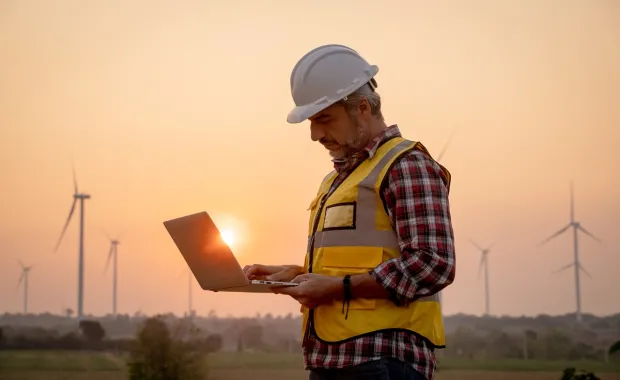The UK’s transition to clean power is well underway, with the Clean Power 2030 Action Plan setting ambitious targets for a cleaner, smarter, and more flexible energy system. But behind every renewable generator, electric vehicle, and smart home lies something less visible yet essential: data.
Without data, the energy transition would stall. With it, we have the opportunity to accelerate change, deliver societal benefits, and ensure the transition is inclusive.
Making the energy transition tangible for everyone
Great Britain’s energy system is incredibly complex, with hundreds of participants - from suppliers and network operators to low-carbon tech providers and innovators. Initiatives like the national smart meter rollout, where 70% of GB households now have a smart meter, and Market-wide Half-Hourly Settlement (MHHS) are the key to enabling meaningful outcomes.
Smart meters provide the raw data to help households manage their energy usage and adapt their behaviours. MHHS will lead to more accurate bills, allowing suppliers to offer discounts, promote flexible usage through innovative time-of-use tariffs, and drive innovation in consumer-facing energy services.
But none of this is simple. Enabling secure and efficient data sharing across the sector is a technical and regulatory challenge. Programmes led by Ofgem - such as the smart energy data repository and a centralised consumer consent solution - are laying the groundwork for a data-driven future. These programmes, which are both key parts of NESO’s Digitalisation Plan, aim to make energy data easier to access, safer to share, and more impactful in driving innovation.
Using data to deliver visible outcomes to consumers
These large-scale programmes are expensive and complex - and ultimately consumers pay for them. For lower-income households, who already spend a higher proportion of their income on energy, this can make the transition feel more like a burden than a benefit.
This is why immediacy matters. Just as households appreciate roadworks when they deliver faster broadband, the energy transition needs to bring visible, day-to-day outcomes that make the benefits real and relevant.
There are already encouraging examples. Octopus Energy is providing a free device to its customers, powered by smart meter data, that enables them to see which appliances are using the most energy. E.ON and Coventry City Council are using thermal imaging to identify homes most in need of retrofit. Northern PowerGrid is piloting smart local energy systems through its Community DSO innovation project.
These initiatives show how data, when used well, can deliver tangible value today - not just in the future. The challenge now is scaling them up so that their outcomes are felt across the country.
Inspiring and upskilling the next generation
The transition is not only about technology - it’s about people. To sustain progress, we need to inspire and equip younger generations with the skills, knowledge and interest to lead the transition into the future.
Bringing energy transition topics into the curriculum is an important first step. But engagement can also be achieved through channels young people already use: social media, mobile apps, and gamification. Imagine a national campaign where students compete in energy-saving challenges, learning about clean power while building lifelong habits.
Awareness alone isn’t enough though; practical skills matter, too. Apprenticeships in engineering, digital technology, and energy innovation will help develop the workforce the UK needs. By investing in young people now, we build the workforce needed to keep the UK’s energy transition on track for decades to come. At CGI, we are proud to be long-standing supporters of upskilling our young people through initiatives such as our STEM degree apprenticeship programme - helping to deliver outcomes not only for young people, but for society as a whole.
Unlocking the power of energy data
Data may be invisible to the end consumer, but it is the backbone of the energy transition. It enables transparency, drives innovation, and ensures households - particularly the most vulnerable - can participate in and benefit from the clean energy system.
At CGI, we are committed to helping the energy sector unlock the full value of data. Through solutions like CGI WiseWatt, where we’re providing simplified and data privacy-compliant access to smart meter energy data, we’re enabling innovators to access and use energy data more effectively, helping to drive the kind of consumer-focused innovation the transition depends on.
If we can make energy data work harder for consumers, communities, and future generations, then the energy transition will not just be a technical success - it will deliver inclusive, lasting outcomes that benefit us all.





